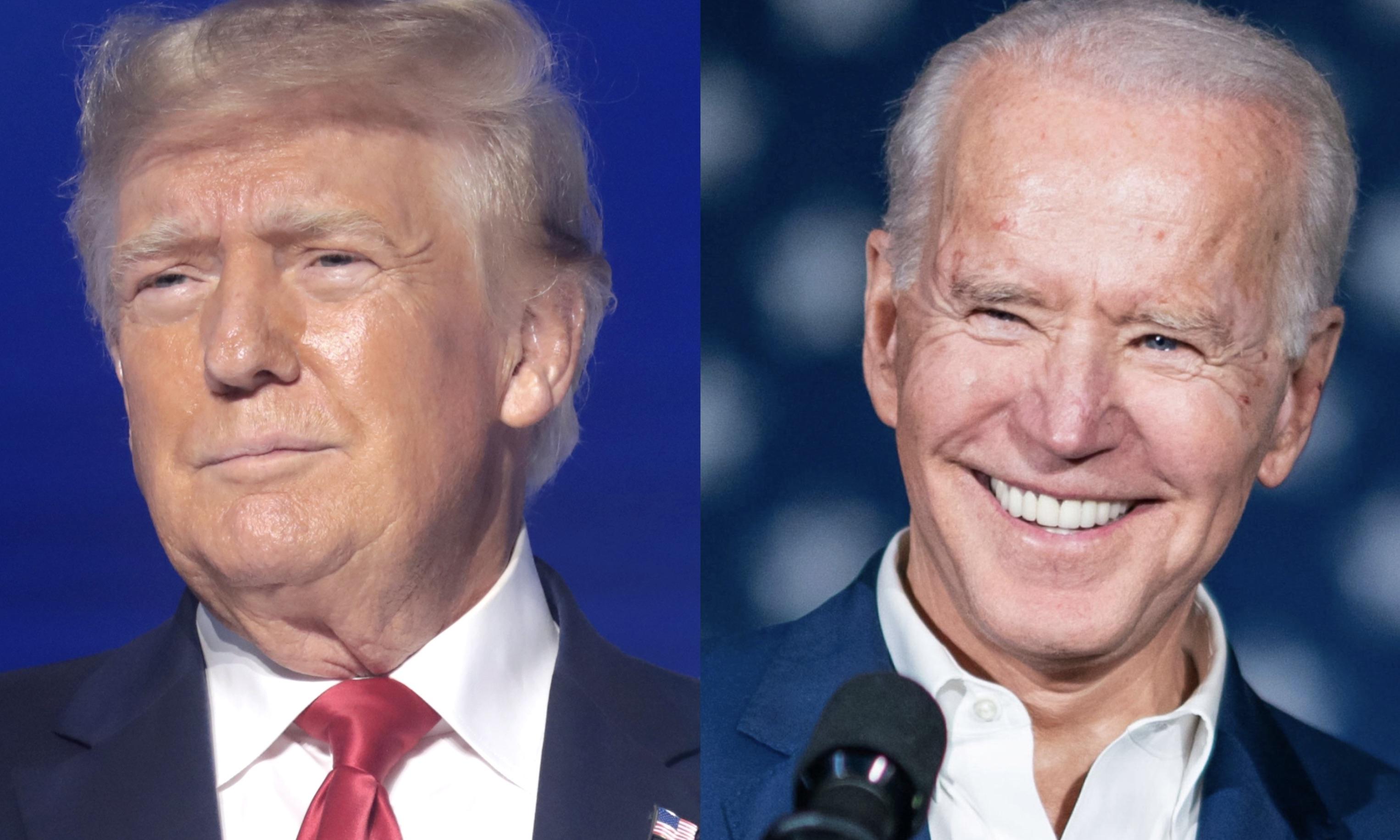As the 2024 U.S. presidential election looms, the debate over global safety under former President Donald Trump and current President Joe Biden has gained renewed attention. Supporters of Trump argue that the world was more secure during his administration, citing specific foreign policy moves that they claim deterred conflicts and promoted stability. Critics of Biden, on the other hand, point to what they describe as a decline in global order since he took office, raising concerns over how international relations have shifted under his leadership.
During Trump’s presidency, his administration followed a unique approach to foreign policy, favoring direct engagement with authoritarian leaders such as North Korea’s Kim Jong-un and Russia’s Vladimir Putin. His administration also adopted an "America First" stance, which prioritized U.S. interests while challenging long-standing alliances, such as those with NATO and European partners. Trump withdrew the U.S. from several multilateral agreements, including the Iran nuclear deal, a move that supporters claim increased pressure on Tehran and contributed to regional stability in the Middle East.
Additionally, Trump’s administration oversaw a relatively calm period in terms of U.S. military engagement abroad, reducing troops in conflict zones like Afghanistan, Iraq, and Syria. Advocates of Trump's policies argue that his tough rhetoric and unpredictability kept adversarial nations in check, contributing to a safer global environment.
In contrast, Biden’s presidency has been marked by a return to traditional diplomacy, emphasizing alliances, climate change agreements, and a commitment to multilateralism. However, Biden has faced criticism for the chaotic withdrawal of U.S. forces from Afghanistan in 2021, which many viewed as a sign of weakened U.S. influence in global affairs. The Taliban's rapid takeover of Afghanistan raised concerns about the stability of the region and left Biden’s foreign policy decisions open to scrutiny.
Furthermore, the ongoing war between Russia and Ukraine has tested Biden’s leadership on the global stage. While Biden has rallied NATO allies and provided critical support to Ukraine, the conflict has destabilized Europe, causing ripple effects across global energy markets and security dynamics. Critics argue that Russia’s aggression may not have occurred if Trump had remained in office, pointing to Trump’s relatively conciliatory approach toward Moscow during his presidency.
Despite these criticisms, Biden has taken steps to strengthen alliances, repair U.S. relations with international organizations, and confront global challenges such as China’s increasing assertiveness in the Indo-Pacific region. Under Biden, the U.S. has reaffirmed its commitment to NATO, emphasized collective security, and worked to reinvigorate U.S. leadership on climate change and global health.
EconoTimes cannot independently verify claims regarding global safety comparisons between the Trump and Biden administrations. The debate over world safety remains complex and is influenced by a range of political, economic, and security factors.
While both Trump and Biden have taken distinctly different approaches to international relations, the broader question of whether the world is safer under one leader or another depends largely on perspectives shaped by political affiliation, global events, and evolving geopolitical landscapes. As the world continues to face multiple challenges, from conflict in Europe to tensions in Asia, the question of global safety remains central to U.S. foreign policy debates ahead of the 2024 election.



 Trump Warns Iran as Gulf Conflict Disrupts Oil Markets and Global Trade
Trump Warns Iran as Gulf Conflict Disrupts Oil Markets and Global Trade  Trump to Attend White House Correspondents’ Dinner 2026, Ending Long Boycott
Trump to Attend White House Correspondents’ Dinner 2026, Ending Long Boycott  Israel Strikes Hezbollah Targets in Lebanon After Missile and Drone Attacks
Israel Strikes Hezbollah Targets in Lebanon After Missile and Drone Attacks  AI is already creeping into election campaigns. NZ’s rules aren’t ready
AI is already creeping into election campaigns. NZ’s rules aren’t ready  Iran Detains U.S. Citizens Amid Escalating Conflict With the United States and Israel
Iran Detains U.S. Citizens Amid Escalating Conflict With the United States and Israel  Middle East Conflict Escalates After Khamenei’s Death as U.S., Israel and Iran Exchange Strikes
Middle East Conflict Escalates After Khamenei’s Death as U.S., Israel and Iran Exchange Strikes  Trump’s Iran Strikes Spark War Powers Clash in Congress
Trump’s Iran Strikes Spark War Powers Clash in Congress  Pentagon Downplays ‘Endless War’ Fears After U.S. Strikes on Iran Escalate Conflict
Pentagon Downplays ‘Endless War’ Fears After U.S. Strikes on Iran Escalate Conflict  Israel Launches Fresh Strikes on Iran After Death of Supreme Leader Ayatollah Khamenei
Israel Launches Fresh Strikes on Iran After Death of Supreme Leader Ayatollah Khamenei  Trump Says U.S. Attacks on Iran Will Continue, Warns of More American Casualties
Trump Says U.S. Attacks on Iran Will Continue, Warns of More American Casualties  Trump Says U.S. Combat Operations in Iran Will Continue Until Objectives Are Met
Trump Says U.S. Combat Operations in Iran Will Continue Until Objectives Are Met  UK Accepts U.S. Request to Use British Bases for Defensive Strikes on Iranian Missiles
UK Accepts U.S. Request to Use British Bases for Defensive Strikes on Iranian Missiles  Why did Iran bomb Dubai? A Middle East expert explains the regional alliances at play
Why did Iran bomb Dubai? A Middle East expert explains the regional alliances at play  Rubio Says U.S. Would Not Target School After Deadly Iran Strike Reports
Rubio Says U.S. Would Not Target School After Deadly Iran Strike Reports  Suspected Drone Strike Hits RAF Akrotiri Base in Cyprus, Causing Limited Damage
Suspected Drone Strike Hits RAF Akrotiri Base in Cyprus, Causing Limited Damage  Zelenskiy Urges Change in Iran After U.S. and Israeli Strikes, Cites Drone Support for Russia
Zelenskiy Urges Change in Iran After U.S. and Israeli Strikes, Cites Drone Support for Russia  Argentina Tax Reform 2026: President Javier Milei Pushes Lower Taxes and Structural Changes
Argentina Tax Reform 2026: President Javier Milei Pushes Lower Taxes and Structural Changes 



























